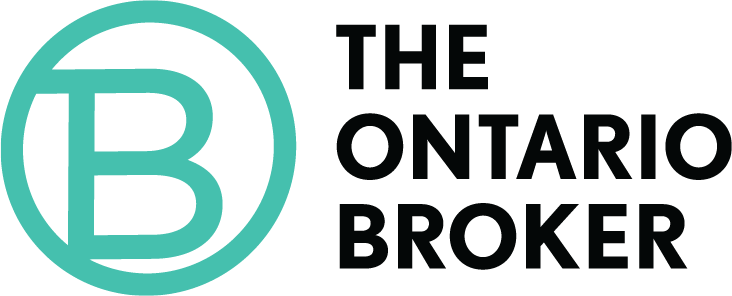

Kim Donaldson
VP Ontario, Insurance Bureau of Canada
Ontario’s P&C insurance industry is facing a major challenge: how can it help businesses navigate the difficult commercial insurance market that the COVID pandemic’s exacerbated? It’s difficult to predict how long the situation will last, but to steer through these rough waters it’s key for insurers and brokers to continue working together in order to find the best outcomes for Ontario consumers.
Even before the pandemic created economic calamity, the commercial insurance market was experiencing a correction. Over the past five years, commercial insurance claims have been more frequent and costly, mostly due to increased weather-related claims. An extended period of record low interest rates for bonds also impacted investment income. These factors forced insurers to reevaluate how much risk they can support, with some insurers reducing supply in certain lines of business and certain parts of the country.
Global uncertainty presents an unprecedented challenge for the Property & Casualty insurance industry and makes it difficult to predict how long the current commercial hard market will last.
According to a recent Deloitte report, Canada’s commercial insurance market started to harden in 2019. Rates rose at the same time the market started reducing its underwriting capacity. The pandemic has only compounded these challenges, particularly in sectors with government-mandated lockdowns like hospitality and entertainment.
The hardening market had already affected commercial clients in various industries across the country, such as commercial trucking. Condominium corporations are now facing challenges securing insurance in Ontario, as they have been in British Columbia and Alberta—the hard market has exposed regulatory gaps specific to governance of condo corporations including education requirements for Property Managers, Officers and Directors.
Organizations in these situations are encouraged to focus on risk management strategies to prevent or reduce claims—an approach that’s been helpful in other provinces. IBC has invested in a roster of Risk Managers to assist these businesses secure a pathway to affordable insurance through their broker.

In November last year, Canada’s P&C insurance industry came together to create the Business Insurance Action Team (BIAT) to help small business owners in Ontario—specifically restaurants and bars—find the insurance they need to continue operation. Brokers struggling to place insurance for their small business clients are encouraged to leverage this new service. Since its inception, it’s helped over 150 businesses find coverage through the Business Insurance Helpline and Business Insurance Help website where trained professionals are ready to answer questions and discuss specific options. Not only do our Risk Managers specialize in identifying operational risks, they can recommend measures to minimize risk, and working with the business’s Broker of Record, they can help outline the types of coverage that should be considered.
These new initiatives build on the spirit of our National Commercial Insurance Task Force IBC launched before the pandemic to gather information to help commercial businesses navigate the increasingly difficult market. Throughout 2020, the task force held roundtables across the country, providing potential solutions for commercial insurance policyholders. Recommendations will be published later this year for the industry, for government and for stakeholders.
Canada’s P&C insurance companies understand the challenges brokers are experiencing during this perfect storm of events affecting the commercial insurance market. As a broker, you’re on the frontline, facing commercial insurance challenges head on. This challenging market won’t end overnight. In the meantime, we’re here to work with you.
To learn more about BIAT eligibility, click here.
To find coverage through the Business Insurance Helpline, call 1.844.2ask.IBC.
CASE STUDIES
- A seasonal, not-for-profit social club in Moonbeam that caters to families and is operated by volunteers was declined coverage from its previous insurer due to a change in market appetite. IBC’s Risk Manager worked closely with the Broker of Record to find coverage in the regular market.
- A neighbourhood pub in Belleville was denied coverage at renewal due to a change in market appetite for commercial hospitality coverage. After approaching multiple insurers, the Broker of Record was unable to find a company to underwrite coverage. BIAT’s Risk Manager worked closely with the business to offer advice on operational issues related to host liquor liability. The business made the appropriate changes and a BIAT insurer provided coverage.
- A Veterans Association in Burlington found itself without coverage after it was denied due to a high liquor to food ratio. BIAT insurers reviewed the application and provided operational coverage and helped secure property coverage within the regular market.
- An amusement park in Amhurstburg had expiring coverage this January. They’d shifted operations from amusement park to takeout food. BIAT insurers reviewed the application and provided coverage for the building.
RISK MANAGEMENT STRATEGIES
- Informing clients of new hospitality programs in the market.
- Using corporate entities to separate low and high-risk operations, allowing some insurers to offer coverage and better pricing.
- Improving submissions by adding explanations for proximate cause of claim and risk controls put in place post-claim.
- Updating revenues and liquor figures, ensuring accurate splits between food, rooms, off-sales and banquet hall for the current COVID period, not re-stating last year’s figures.
- Updating business interruption limits for the prior year to reflect the current COVID period decline—an opportunity for businesses to see a return premium for the previous year’s policy.
- Demonstrating to underwriters how the business model has pivoted from the previous year, ensuring consumer websites and social media represent the new model.
- Developing an Alcohol Policy Summary for licensed establishments that had below average alcohol policies.
